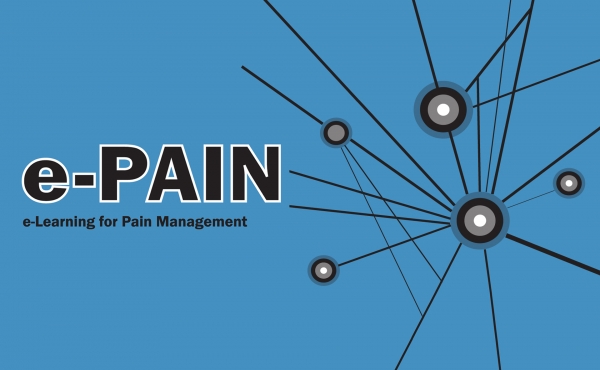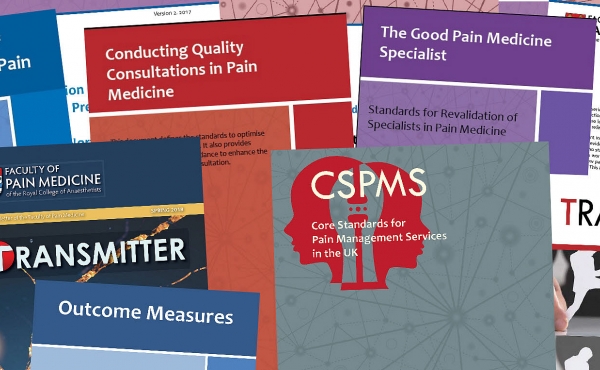Opioids Aware
Opioids Aware
A resource for healthcare professionals and patients to support prescribing of opioid medicines for pain
The Opioids Aware webpages are undergoing updates.
Sections
The Faculty of Pain Medicine (FPM) has undertaken a comprehensive update to the Opioids Aware resource reflecting the latest clinical evidence and international guidance. The current version was published for professional and public consultation and revised based on received suggestions. Here are the key changes and highlights:
- Dose Guidance Revised
- The recommended oral morphine equivalent (OME) threshold has been reduced from 120mg to 90mg/day, with an ideal target of 50mg/day. These are more clearly designated as guidance and exceptions may be clinically appropriate
- This change is based on new evidence highlighting increased harm at higher doses without proportional benefit.
- Updated Literature and Reference
- All references and external links have been reviewed and updated
- Safeguarding
- A new section addresses safeguarding considerations when prescribing strong opioids, especially in vulnerable populations.
- Opioid Statistics
- Outdated statistics, particularly those not relevant to prescribed opioids, have been removed to improve clarity and relevance.
- Terminology
- Clarity on the use of terminologies when describing opioids
- Updated patient information section
Opioids Aware is a living resource with ongoing updates as new evidence arises. It will be a part of the Professional Standards Committee workstream.
Introduction to the resource
This guide is aimed to provide general guidance on the use of opioid medications, it specifically excludes their use in sickle cell disease4,5, 6, palliative and end-of-life situations. The management of pain associated with sickle cell disease may involve a different choice of medications to those in this guideline. It is intended to help clinicians on best use; it is a guide to good practice, and not a protocol.
Evidence for the use and effectiveness of opioid medications for long-term treatment is sparse, and, sadly often of poor quality, with recent analyses focusing on population risk considerations 1 e.g., individuals with an active substance use disorder or psychiatric disorder.
Pain medicine is aimed at supporting the individual, and prescribing any medication for them, potentially long-term must be underpinned by applying best professional practice, understanding the condition, the patient, and their context.
Prescribing and managing of medications should recognise the importance of patient-prescriber communication; have clear aims about the benefits and risks, and the means and opportunities to assess these; recognising proper use, prescribing practice, and inappropriate and risky use.
This resource, developed by UK healthcare professionals and policymakers, provides the information to support a safe and effective prescribing decision.

For patients who have refractory and disabling symptoms, a detailed assessment of the pain experience and the effect of any treatments, medication or other, should be carefully completed and recorded. Early specialist advice should be considered.

but there is a poor research base regarding their long-term use.

if the dose can be kept low and especially if their use is intermittent (however it is difficult to identify these people at the point of opioid initiation).

Various ‘cut offs’ have been suggested for maximum opioid dose, with prescriber caution being advised above 50mg Morphine Milligram Equivalent (MME), and specialist advice suggested if a dose above 90mg MME is considered.2, 3 Patients established on higher than recommended dose should be assessed for efficacy and side effects, and a careful plan for either continuation or reduction with monitoring should be planned. Do not discontinue abruptly.

and plans to reduce and stop them should be considered. Patient and prescriber support may be needed, and a careful reduction/optimisation plan will be needed.
References
- Busse JW, Craigie S, Juurlink DN, Buckley DN, Wang L, Couban RJ, et al. Guideline for opioid therapy and chronic noncancer pain. Cmaj. 2017;189(18): E659-E666.
- Dowell D RK, Jones CM, Baldwin GT, Chou R. CDC Clinical Practice Guideline for Prescribing Opioids for Pain — United States. Morbidity and Mortality Weekly Report (MMWR). 2022;71(3):1-95.
- The 2017 Canadian Guideline for Opioids for Chronic Non-Cancer Pain (magicapp.org)
- Sickle cell disease: managing acute painful episodes in hospital. Clinical guideline [CG143]Published: 27 June 2012
- Field JJ. Five lessons learned about long-term pain management in adults with sickle cell disease. Hematology Am Soc Hematol Educ Program. 2017 Dec 8;2017(1):406-411.
- American Society of Hematology 2020 guidelines for sickle cell disease: management of acute and chronic pain
The original resource was written and collated by healthcare professionals with the support of stakeholder policy groups. Contributors to the resource have included representatives from:
- British Pain Society
- Care Quality Commission
- Faculty of Addictions, Royal College of Psychiatrists
- Faculty of Pain Medicine, Royal College of Anaesthetists
- NHS England
- NICE
- NHS Business Services Authority
- Public Health England
- Royal College of General Practitioners
- Royal Pharmaceutical Society
With thanks to Annabels Foundation for their grant funding which supported the update of Opioids Aware.
Opioids Aware slide set
The Opioids Aware presentation slide set for teaching purposes is being updated and will be available soon.



